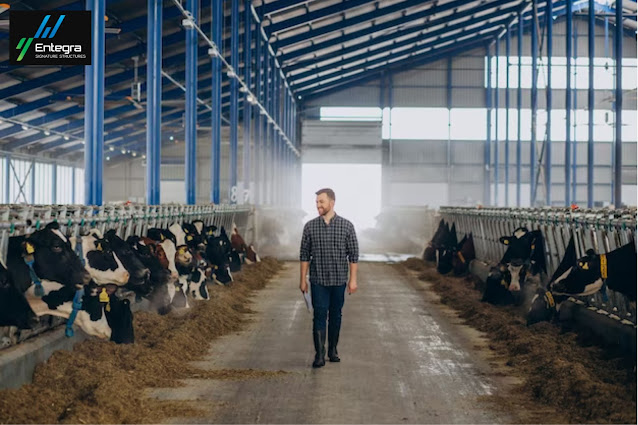Reducing Methane Emissions From Dairy Sheds With Unique Approaches
Methane emissions from dairy sheds have become a significant concern in recent years due to their contribution to global greenhouse gas emissions. Australian farmers, in collaboration with organizations such as Meat and Livestock Australia, are actively seeking ways to reduce methane emissions and improve sustainability in the beef industry. This article explores various strategies and innovative technologies to address this issue effectively.
Grazing Management:
Implementing rotational grazing practices to optimize forage utilization and minimize enteric fermentation. Using improved pasture management techniques to enhance the digestibility of feed and reduce methane production in grazing animals.
Methane Busting Technologies:
Adoption of innovative feeding additives, such as probiotics or methane inhibitors, to modify the gut microbiome of livestock and reduce methane emissions. Researching and developing feed formulations that promote more efficient digestion, leading to decreased methane production in grazing animals.

Dairy Shed Structures and Design:
Integration of advanced ventilation and cooling systems in dairy sheds to improve air quality, reducing stress on animals and consequently minimizing methane emissions. Utilizing environmentally friendly construction materials, like those provided by companies such as Entegra Signature Structures, to reduce the carbon footprint associated with dairy shed construction.
Farm Machinery and Equipment:
Regular maintenance and tuning of farm machinery to ensure optimal fuel efficiency and minimize emissions. Adoption of precision farming techniques and technologies to optimize fertilizer application, reducing nitrous oxide emissions from the soil.
Education and Knowledge Sharing:
Providing educational resources and training programs for farmers to raise awareness about methane emissions and the available mitigation strategies. Facilitating knowledge exchange platforms and networks among beef producers to share best practices and success stories.
Conclusion:
Reducing methane emissions from dairy sheds is a crucial step toward a more sustainable and environmentally friendly beef industry. By implementing innovative technologies, adopting efficient farming practices, and promoting knowledge sharing, Australian farmers can play a significant role in mitigating the environmental impact of the industry. Collaboration between farmers, industry organizations like MLA, and researchers will be pivotal in developing and implementing effective methane-busting strategies for the benefit of both the industry and the planet. Together, we can build a more sustainable future for the beef industry while minimizing its ecological footprint.
.jpg)

.jpg)
Comments
Post a Comment